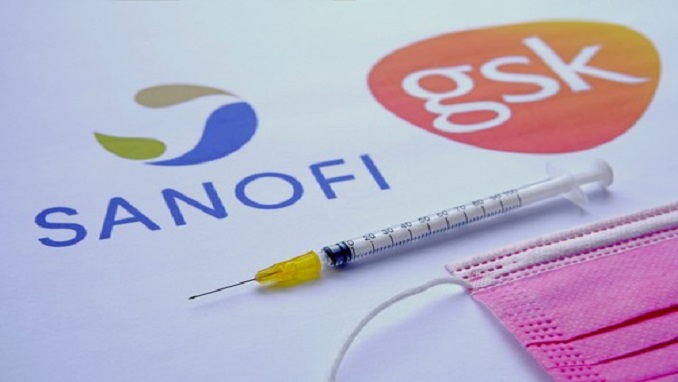After late-stage clinical human trials showed their protein-based COVID-19 vaccine provided a high level of protection against the disease, the French drugmaker Sanofi and GlaxoSmithKline (GSK) announced their plan to seek regulatory authorization.
The authorization will be sought from both the U.S. Food and Drug Administration (FDA) and the EU’s European Medicines Agency (EMA), Sanofi said.
According to Sanofi’s press release, two doses of “the Sanofi-GSK vaccine provided 100% protection against severe disease and hospitalizations and 75% efficacy against moderate-to-severe disease in seronegative populations.” The jab also demonstrated 75% efficacy against moderate-to-severe COVID-19 in Phase III studies and was found to be almost 58% effective against all symptomatic disease, Sanofi said.
While the clinical trials of Pfizer and Moderna’s mRNA vaccines showed better numbers in preventing symptomatic illness, those tests were conducted before the existence of Omicron, a CNN report noted.
“No other global Phase 3 efficacy study has been undertaken during this period with so many variants of concern, including Omicron, and these efficacy data are similar to the recent clinical data from authorized vaccines.” said Thomas Triomphe, Sanofi’s executive vice president for vaccines.
Sanofi-GSK COVID vaccine could be a booster
Clinical trials found the vaccine is “well-tolerated in younger and older adults with no safety concerns,” and when it was given as a booster after other vaccinations, it showed “a significant increase in neutralizing antibodies of 18- to 30-fold in participants who had received two doses of an already approved Covid-19 vaccine,” the release said.
In developing the drug, the two partner companies contributed technology from established vaccine platforms that have proven successful against influenza, the release said: “Sanofi provides its recombinant antigen and GSK contributes its pandemic adjuvant,” a substance that boosts the vaccine’s effectiveness.
If approved, as DW points out, the Sanofi-GSK vaccine could be “life-changing for people living in low-income countries”: As a protein-based vaccine, its transportation “doesn’t require the sophisticated cooling methods demanded by mRNA vaccines, making it easier to ship around the world.”




